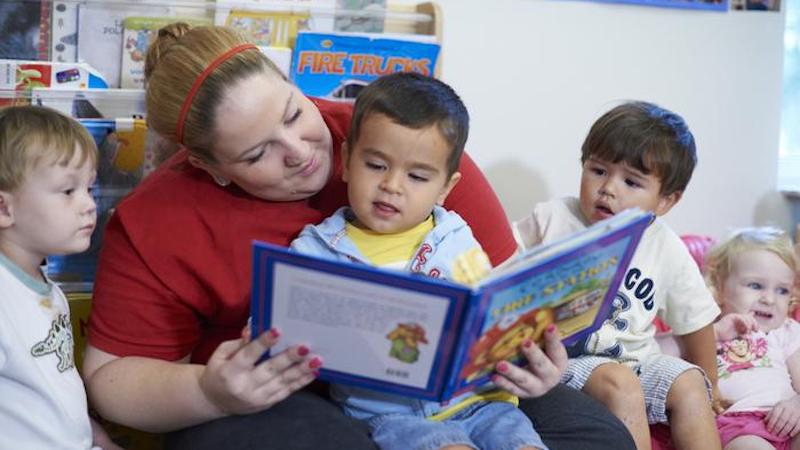
Language skills are strong predictors of academic, socioemotional and behavioral outcomes when children enter school. They learn language in preschool years by interacting with others, especially their parents. Book sharing is a popular way parents engage young children in conversation. However, not all parents are comfortable with book sharing and not all children like having books read to them.
A new study on “parent talk” by Florida Atlantic University, in collaboration with Aarhus University in Denmark, provides an alternative. To boost the quality of a preschooler’s language experience and skills, consider reminiscing with them.
To determine the effects of encouraging parents to reminisce with their children, researchers examined properties of conversations between Danish parents and their 3- to 5-year-old children as they engaged in three different activities. The parents and children were asked to share a wordless picture book (book sharing), reminisce about past events, and build with LEGO bricks.
From transcripts of parent-child conversations in these three activities, researchers measured properties of parent speech that have been found to be related to children’s language development. They also measured how much the children talked, as child output also has been found to be a positive predictor of their language growth.
Results of the study, published in the Journal of Applied Developmental Psychology, reveal that reminiscing is very good at eliciting high quality speech from parents, and in many ways, is just as good as book sharing. Book sharing and reminiscing were higher than toy play on three measures of interactive quality: less frequent use of directives, more frequent use of what/who/where questions, and more frequent use of why/how questions.
Only reminiscing, not book sharing, differed from toy play in parent speech being higher in grammatical complexity and in more frequently expanding child utterances. Both reminiscing and book sharing increased the lexical richness of parent speech compared to toy play.
“Findings from our study should bolster arguments that have been made for reminiscing as a basis for culturally sensitive intervention to increase the quality of children’s language experience,” said Erika Hoff, Ph.D., senior author and a professor, Department of Psychology, FAU Charles E. Schmidt College of Science. “Talk in reminiscing is characterized by longer and more complex sentences than talk in many other settings, and particularly elaborative reminiscing in which the adult scaffolds and encourages the child’s talk, has been found to benefit children’s language growth. Reminiscing also is argued to be more widespread as a naturally occurring practice across cultures and levels of socioeconomic status than book reading.”
Interestingly, researchers did not find any differences between mothers and fathers. Until now, literature on differences between fathers’ and mothers’ talk to their children has been scant with mixed findings and heavily reliant on samples in the United States. A Danish sample offered the opportunity to study differences between mothers and fathers in a place where parenting roles are less gender-typed than elsewhere.
While findings provide new evidence that reminiscing is an activity that elicits parent use of rich language, the researchers caution that it does not diminish differences in the quality of parent speech related to parent education level. More educated parents more frequently labeled objects and events, their speech was grammatically more complex, and they more frequently repeated and expanded their children’s prior utterances.
“Reminiscing is good, but it’s not a magic bullet that closes societal and educational gaps. The applied motivation behind our line of research is to find ways that will close the gap in the language experience of children from more advantaged and less advantaged families,” said Hoff. “Of course, it’s good to find activities that enrich all children’s language experience, and all children will benefit from such experiences. However, such activities can’t be expected to eliminate all differences in children’s experience.”
Even though differences in language use associated with parent education are not eliminated, an important finding from this study is that the biggest effects on the quality of parent talk to children is the activity that parents and children are engaged in.
“I would suggest to parents that it’s not just important to spend time with your children. What you’re doing when you’re spending time with them also is important,” said Hoff. “It’s good to carve out some time just to have a conversation. If you like reading books, read books, if you would rather talk about planning the future or talking about the past, do that. Make time to have conversations with your children.”
